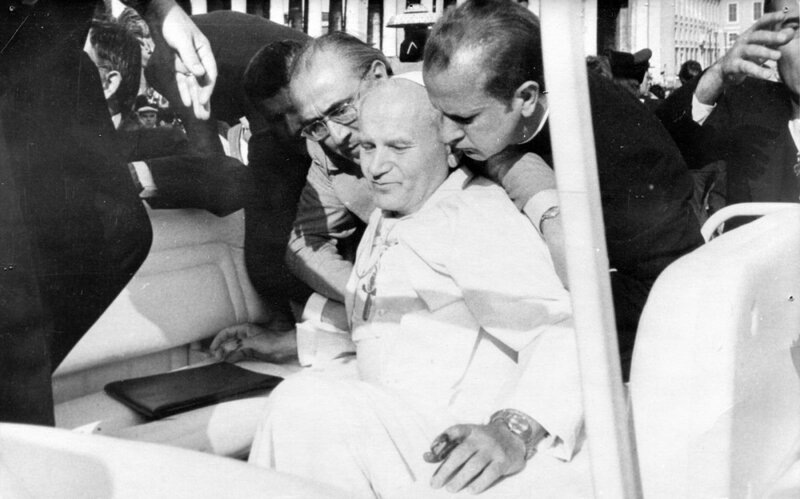“Danger is an occupational hazard,” said John Paul II in 1980, refusing to wear a bulletproof vest during general audiences and meetings with people. A year later, on 13 May 1981, the shots fired in Vatican’s St. Peter’s Square hit the Pontiff.
The world held its breath because it was a close call: an assassin shot the Pope in the abdomen – one of the bullets missed the aorta by millimeters – and the victim lost plenty of blood. His condition was critical, but a five-hour surgery saved his life. Well into the night, the world was relieved to hear that the patient regained consciousness.
People exhaled, and started speculating. The gunman, Mehmet Ali Ağca, had been caught and identified as a Turkish terrorist escaped from prison. However, he hadn't acted alone. Subsequent investigation and trial exposed three major forces involved: communist Bulgaria’s secret services, Turkish mafia, and Turkey’s right-wing extremists.
These three helped with planning, funding and logistics, but Ağca also had ties to the KGB, having met its officer in Sofia. There was one more communist agency involved: in the next weeks, East German Stasi launched a disinformation campaign aimed at diverting the world’s attention from the Bulgarians, which anyway was seen as only a front for the Soviets.
The Eastern Bloc had a real problem with the Pope: he knew their system inside out and saw through its weak foundations - which, combined with his integrity, authority and charisma, made him a serious threat. No wonder that he Bloc leaders panicked and attempted to remove that role model who had the ear of the masses.
Having recovered, he carried on drilling holes in the system with his teachings and pastoral visits, until the system crumbled. Paradoxically, however, the communists should have thanked God that he lived: if he'd died a violent death, the system might have experienced equally violent end instead of slow demise.
Yet, John Paul II was not a politician, and preached universal moral theology. He understood that the Eastern Bloc lived by materialistic communism, and the West believed in materialistic consumerism, with materialism as one similarity between them. Another one was that neither had any use for God, and both played down the role of man.
The Polish Pope saw the dangers of such philosophies, and addressed them in the course of his pastoral service, preaching human dignity and solidarity, denouncing attempts to blot out cultural and ethnic heritage, warning the world against "signs and symptoms of death", such as war, poverty or arms race, and promoting reconciliation between nations and religions.
Travelling great distances to speak to people no Pope had ever spoken to, and teaching the West and the East in his encyclicals, the Pontiff preached his moral theology aimed at elevating the man and bringing him to God – but it is his visits to Poland that affected the country, Europe, and the world the most.
They unified the nation and strengthened its resistance, which translated into the weakening of the communist regime. When that regime had its legs cut from under and tumbled, others, like dominoes, tumbled as well. The Pope’s role in that demise cannot be overlooked.
Last year, the IPN launched a website devoted to John Paul II and his pastoral visits to Poland. You’ll read there about all three pilgrimages that reshaped minds, and, in consequence, the world: https://pielgrzymki.ipn.gov.pl/pie/english-content
Also worth checking out are the publications exploring the attempt on the Pope's life, and a downloadable brochure on his pontificate.
